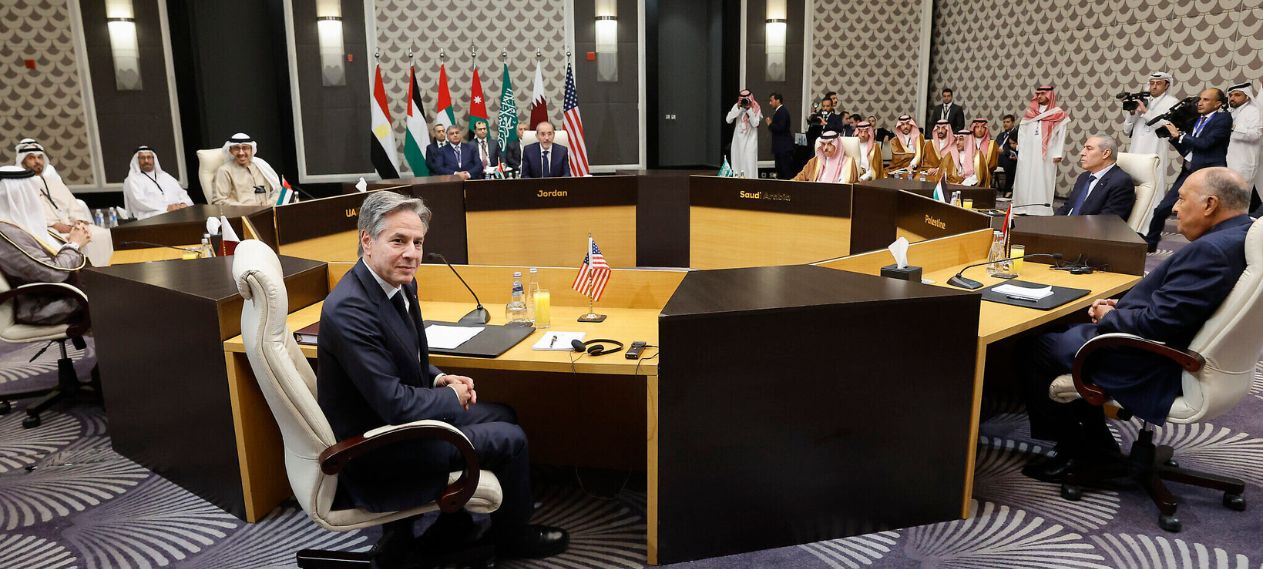Arab states are collaborating on an initiative to broker a ceasefire and secure the release of hostages in Gaza. This plan, if accepted by Israel, could lead to the normalization of relations, including the potential formalization of ties with Saudi Arabia. The broader proposal aims for “irreversible” steps towards establishing a Palestinian state.
Senior Arab officials intend to present this plan within a few weeks, with hopes of ending the Israel-Hamas conflict and preventing a wider Middle East conflagration.
Discussions have taken place with the US and European governments. The plan may involve Western nations formally recognizing a Palestinian state or supporting full UN membership for the Palestinians. The goal is to provide hope for Palestinians beyond economic benefits or the removal of symbols of occupation.
International pressure mounts on Israel to end its offensive in Gaza. US Secretary of State Antony Blinken emphasizes the need for a Palestinian state that collaborates with Israel for effective peace. Saudi Foreign Minister Prince Faisal bin Farhan suggests that regional peace, including recognition of Israel, is contingent upon a Palestinian state.
Efforts are ongoing to secure a deal with Israel, but challenges exist. Israel’s stance, coupled with Prime Minister Benjamin Netanyahu’s rejection of a two-state solution, poses obstacles. However, normalization is considered a potential incentive for Israel’s current political landscape.
Also Read: Saudi Arabia and Israel’s History and latest Condition for Recognition
Saudi Arabia was previously close to establishing diplomatic ties with Israel before Hamas’s October 7 attack. Talks included a security pact with the US, freezing Israeli settlements, and supporting the Palestinian Authority. While the process stalled, Saudi Arabia keeps the option on the table, seeking more concessions from Israel.
Saudi Arabia’s willingness to consider normalization with Israel serves as a bargaining chip. The nation, a leader in the Sunni Muslim world, expresses concern about the Israel-Hamas conflict’s regional impact and its potential radicalizing effect in Gaza.
The Saudi leadership condemns Israel’s offensive in Gaza, joining calls for an immediate ceasefire. Blinken sees the current crisis as an “inflection point” for the Middle East, urging Israel to seize the opportunity for hard decisions.
Current Situation in Gaza
The Health Ministry in Gaza reports that over 24,400 Palestinians have lost their lives, while the United Nations indicates that 25% of the 2.3 million people in Gaza are facing starvation. In Israel, approximately 1,200 individuals were killed during the October 7 attack initiated by Hamas, which triggered the war and led to the abduction of around 250 people by militants.
Situation in Gaza Hospitals
According to a source, a significant challenge in Gaza’s hospitals is that “literally five or six doctors or nurses” are attending to hundreds of patients daily, many with life-threatening injuries. The situation is described as overcrowded, with so many patients on the floor that moving around without stepping on someone’s hands or feet is difficult.
The Health Ministry in Hamas-run Gaza estimates that 60,000 people have been wounded, with hundreds more sustaining injuries each day. Since Israel declared war on Hamas in response to surprise attacks on Oct. 7, it has consistently accused the group of using Gaza’s hospitals as cover for military activities.
Specifically, Israel pointed to Al-Shifa in Gaza City, claiming that Hamas had concealed command centers and bunkers beneath the hospital’s extensive grounds. In late November, the Israeli military unveiled what it asserted was a Hamas military facility located under the hospital.
It was mentioned that he managed to reach Al-Shifa three times with deliveries of medical supplies, fuel, and food. However, on one occasion, the delivery was delayed for 12 days due to Israeli refusals.

